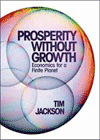Community Engagement in Low Carbon Activities: Decision-makers’ and citizens’ perspectives on ‘state’ and ‘non-state’ initiatives
Overall aims
To investigate the role of community-based governance mechanisms and initiatives pursued by ‘state’ and ‘non-state’ actors, and to explore the comparative advantages associated with a variety of community-based interventions.
Context
Over the last decade, a growing recognition of community action as a vital strategy in addressing climate change has increasingly informed government policy, academic inquiry and grassroots action. Mirroring wider changes in the nature and conception of governance in contemporary modernity, there is gathering consensus amongst policy makers that locally conceived projects are more likely to address effectively the social, cultural, and economic barriers, which (a) may prevent individuals from recognising their own contribution to encouraging more sustainable energy use; and (b) can serve to prevent citizens from engaging more fully in the wider political debate on sustainable living. Indeed, it is postulated that community level initiatives hold the potential to ground climate change policy in a much more visible way to the everyday practicalities of energy use than purely ‘top- down’ measures have, to date, been able to achieve.
Research questions and methods
What types of initiative have been recently established by local authorities and ‘non-state’ actors (e.g. NGOs, charities, community groups) to engage people in combating climate change locally?
What have been the main benefits and pitfalls associated with the establishment and operation of those initiatives?
What are the main opportunities and challenges in respect of effectively connecting community members in local-level climate change/environmental initiatives?
An extensive programme of empirical work, carried out over a period of 2½ years, included:
- A review of UK legislative statements and policy communications relevant to community action on climate change;
- Schedules of in-depth and semi-structured interviews with project management representatives from local authority and ‘non-state’ community engagement initiatives;
- Administration of questionnaire-based postal surveys with large samples of households in areas where community initiatives are operating (both participant and non-participant residents).
Results
The experience of initiatives scrutinized in this study highlight the promise of community action on climate change, and some of its limitations. Most of these initiatives incorporate efforts to utilize and enhance social capital, promote social learning and trigger the evolution of new social norms through the encouragement of shifts to lower carbon lifestyles. Awareness-raising, modification of existing services and leading by example are among a range of opportunities that local authorities and non-state actors can focus on in attempts to galvanise community engagement. The main challenges for engagement include problems of poor image and perception in the community, associated historically with low levels of trust; apathy towards taking action on climate change among community members; the provision of sufficiently compelling reasons to participate; and how best to connect effectively with the vast range of needs and priorities that characterize a diversity of lifestyles existing in ‘the community’.
Implications
The acid test for the effectiveness local-level ‘state’ and ‘non-state’ environmental initiatives lies in the durability of attitudinal and behavioural changes instigated among the community members that they set out to influence. Although many local authorities across the UK have been hesitant to take up the challenge of community engagement, on both climate change and more generically, there is substantial evidence to suggest that they will have an increasingly important and influential role to perform in their capacity as an interface between citizens and government policy. A growing body of evidence demonstrates that the relatively small numbers of ‘best practice’ cases are in fact making some noteworthy progress that might usefully be replicated, with suitable modifications, on a broader scale. Communities come in many forms, and therefore a mixture of policy tools and practical ‘handles’ which people can identify with and latch on to will be essential. Community action is about collective endeavour in pursuit of a more socially, environmentally and economically sustainable future. It is the antithesis of isolation and individualism.
Outputs
Peters, M, S Fudge and P Sinclair 2010. Mobilising community action towards a low carbon future: opportunities and challenges for local government in the UK. Energy Policy 38: 7596–7603, Special Issue 'Carbon Reduction at Community Scale'.
Peters, M 2011. Creating the right climate, article in New Start 'the magazine for making better places', 6th April.
Peters, M 2011. Driving low carbon communities. Article in the Local Government Chronicle, 10 October 2011.
Fudge, S and M Peters 2009. Motivating carbon reduction in the UK: the role of local government as an agent of social change. Journal of Integrative Environmental Sciences 6 (2): 103-120.
Fudge, S and M Peters 2011. Behaviour change in the UK climate debate: an assessment of responsibility, agency and political dimensions. Sustainability 3 (6): 789-808.
Peters, M 2008. Educational community-based climate change initiatives in the UK: the role of local government and the experience of participants. Proceedings of the 10th Conference on Environmental Education in Europe, 15-19 October 2008, Valletta, Malta.
Peters, M and S Fudge 2008. Motivating individual carbon reduction through local government-led community initiatives in the UK. In T Geerken et al (Eds) Proceedings of 2nd Conference of the Sustainable Consumption Research Exchange (SCORE) Network: ‘Sustainable Consumption and Production Framework for Action’, 10-11 March 2008, Brussels, Belgium.
Peters, M and S Fudge 2008. Motivating individual carbon reduction through local government-led community initiatives in the UK: the role of local government as an agent of social change, RESOLVE Working Paper Series 04-08.Guildford: University of Surrey.
Peters, M 2007. Lifestyle research study: selected findings from a questionnaire-based survey with residents in the London Borough of Richmond-upon-Thames. RESOLVE Working Paper Series 05-07. Guildford: University of Surrey.





